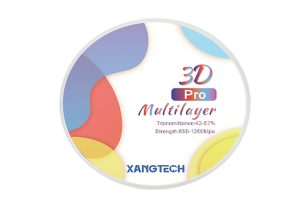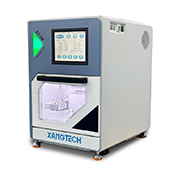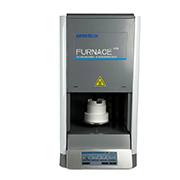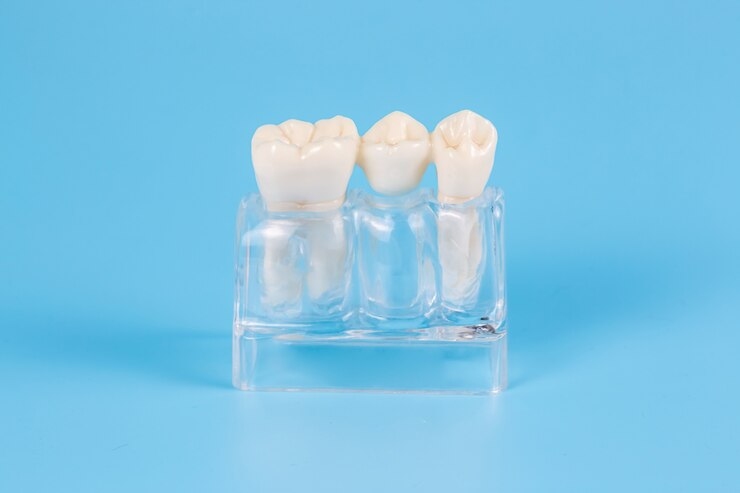Что такое блоки литиевого дисиликата и их роль в стоматологии?
Что составляет дизиликат лития и его основные особенности?
Дисиликат лития - это стекло-керамический материал, ценимый своей прочностью и чистым, привлекательным внешним видом. Содержит оксид лития (Li) ₂ О), диоксид кремния (SiO) ₂) и мелкие элементы, которые создают его кристаллическую структуру. Эта настройка позволяет специальному процессу сделать ее сильной и визуально ясной.
Литиевый дисиликат XANGTECH выделяется в стоматологической работе. Он остается химически стабильным и имеет сильное сопротивление изгибу, что делает восстановления длиться дольше. При твердости Викерса 5400 он хорошо выдерживает жевательное давление.
Как литиевые дисиликатные блоки улучшают стоматологическую работу?
Эти блоки изготовлены для CAD/CAM стоматологических систем. Они позволяют стоматологам создавать точные реставрации, такие как короны, мосты или шпоны. Их четкий внешний вид имитирует естественные зубы, придавая реалистичный вид.
Для визуализации дизиликат лития блестит в соответствующем цвете зуба и ясности. Он также прост в форме, что экономит износ на фрезерных инструментах и расширяет их использование.
Когда эти блоки являются лучшим выбором?
Стоматологи выбирают дизиликат лития, когда они хотят силы и красоты. Идеально подходит для передних зубов, где внешний вид является наиболее важным. Но он также достаточно жесткий для задних зубов, имеющих дело с обычным жевательным давлением. Его долговечность помогает реставрациям выдерживать повседневную износу, идеально подходит для корон, мостов, шпонов и крошечных наполнений, таких как инлайсы или онлайсы.
XANGTECH: Доверенное имя в литиевом дисиликате
Кто такой XANGTECH и что они предлагают?
XANGTECH приносит 11 лет ноу-хау в области стоматологических материалов, таких как циркония, PMMA, фрезерные инструменты и блоки дизиликата лития. Основываясь в Nanyang Liandong Biotechnology, мы обслуживаем профессионалов в более чем 20 странах.
Наша цель проста: предложить комплексные решения с отличным обслуживанием для удовлетворения меняющихся потребностей стоматологии.
Что отличает литийный дисиликат XANGTECH?
Сила и визуальная привлекательность
Наши блоки соответствуют промышленным стандартам с прочностью 400 (±60 МПа) после обработки. Они справляются с ежедневным жеванием, не разрушаясь.
Для внешнего вида они предлагают четкие варианты (высокая или низкая полупрозрачность) и соответствуют обычным оттенкам зубов, таким как A1-D2 или BL1-BL4, для естественных результатов.
Хорошо работает с CAD/CAM
Наши блоки плавно вписываются в цифровые рабочие процессы. Их легко фрезировать, снижая износ инструмента и экономяя затраты, сохраняя при этом точность.
Их быстрый процесс кристаллизации сокращает время лаборатории без потери качества, идеально подходит для загруженных лабораторий, стремящихся работать быстрее.

Как отличается XANGTECH’ s Дисиликат лития из других блоков дисиликата лития?
Существуют ли заметные различия в производительности между брендами?
Все блоки дисиликата лития имеют аналогичные основы - они стекло-керамические и прочные. Но бренды отличаются такими вещами, как скорость их затверждения, как хорошо они меляют, насколько верны их цвета и насколько сильны они под напряжением. Некоторые сосредоточены на скорости, но могут не соответствовать цветам хорошо или длиться так долго.
Оценка ключевых факторов: прочность, прозрачность и время обработки
Прочность к изгибу и сопротивление переломам
Твердость дизиликата лития очень важна для хороших результатов. Большинство блоков дают прочность к изгибу около 360-400 МПа после затверждения. Только те, кто имеет надежные проверки качества, сохраняют эту силу стабильной во всех партиях. Литиевый дисиликат XANGTECH достигает 400 МПа (±60 МПа) в двуаксиальной прочности, поэтому восстановление может потребовать повседневных жевательных сил.
Оптические свойства и соответствие теней
Ясность и точность цвета имеют решающее значение для исправления передних зубов. Типы с высокой полупрозрачностью (HT) позволяют свету сиять, как настоящая эмаль. Низкопопрозрачность (LT) лучше для покрытия окрашенных зубов или металлических оснований. Литиевый дисиликат XANGTECH предлагает такие оттенки, как A1, A2, A3, A3.5, B1, B2, C1, C2, D2, BL1, BL2, BL3 и BL4, что делает цветовое сопоставление точным.
Требования к эффективности фрезеры и отжиганию
Скорость производства делает разницу. Литиевый дисиликат XANGTECH затверждается просто и быстро. Это экономит время в лаборатории и улучшает рабочий процесс. Он также легко мельнит, что помогает избежать быстрого износа инструментов, сокращая затраты со временем.
Что учитывать при выборе Литиевый дисиликатный блок?
Сила или внешность: что важнее?
При выборе блоков дизиликата лития, таких как XANGTECH, решите, является ли сила (для задних зубов) или эстетика (для передних зубов) приоритетом. Наши варианты высокой четкости соответствуют косметическим потребностям, в то время как варианты с низкой четкостью лучше скрывают темные основания зубов.
Влияет ли время обработки на рабочий процесс?
Лаборатории с жесткими графиками требуют быстрой обработки. Быстрая кристаллизация наших блоков помогает соблюдать крайние сроки, сохраняя при этом высокое качество.
Как входит фактор затрат?
Стоимость – это не только цена. Легкое фрезерование продлевает срок службы инструмента, а наши блоки литиевого дисиликата балансируют высшую производительность с справедливой ценой, предлагая ценность во многих реставрациях.
Где используются литиевые дисиликатные блоки?
Общее применение: Короны, шпоны и многое другое
Литиевый дисиликат работает для многих реставраций, таких как полные короны (особенно передние зубы), тонкие шпоны или меньшие наполнения, такие как инкласы. Его сила и красота делают его универсальным.
Он хорошо справляется с жевательными силами, приспособляясь к предмолярным областям с умеренным давлением.
Хорошо ли это для передних и задних зубов?
Да, с прочностью около 400 МПа и отличным внешним видом, дизиликат лития работает для передних зубов (где правила внешнего вида) и задних зубов (где важна функция). Для мостов длиной более трех единиц циркония может быть лучше для дополнительной прочности.
Как XANGTECH улучшает стоматологическую работу
Лучшее фрезерование с блоками XANGTECH
Наши блоки построены для CAD/CAM стоматологические системы, предлагая чистые разрезы и меньше износа инструмента. Это помогает специалистам управлять несколькими случаями ежедневно.
Постоянные цвета и ясность
Цвет зубов имеет значение. Наши блоки обеспечивают стабильные оттенки (A1-D2, BL1-BL4) и ясность для натуральных результатов, будь то для одного зуба или нескольких.
Что говорят стоматологи о XANGTECH?
Профессионалы любят наши продукты за их легкость и результаты. Многие говорят, что наша простая обработка сокращает настройки кресла, обеспечивая пациентам длительные, реалистичные восстановления, даже в сложных случаях.

Часто задаваемые вопросы
В: Какова сила блока дизиликата лития XANGTECH?
A: После обработки он имеет прочность 400 (±60 МПа), подходящие передние зубы для внешнего вида и задние зубы для умеренного жевания.
В: Будут ли блоки XANGTECH работать с моей системой CAD/CAM?
О: Да, они предназначены для стандартных настроек, не требующих специальных инструментов или программного обеспечения.
В: Как время обработки сравнивается с другими материалами?
А: Наши блоки имеют быстрый, простой процесс кристаллизации. Это экономит время, сохраняя высокое качество восстановления, отлично подходит для эффективных лабораторий.











